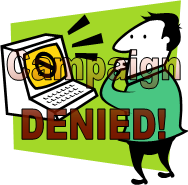Have you read some of the headlines concerning Hyperlocal lately? Do a search for “hyperlocal advertising” and you’ll find things like How Hyperlocal Advertising Changes Everything and Small Businesses Target Hyper-Local Mobile Ads, and much, much more. Even Facebook is getting into hyperlocal.
Maybe it’s time for YOU to get into the hyperlocal game as well.
What is Hyperlocal?
Wikipedia’s definition of hyperlocal is probably the most accurate:
“A working definition of hyperlocal was published in a 2012 Nesta report, describing it as online news or content services pertaining to a town, village, single postcode, or other small, geographically defined community."

Hyperlocal is basically niche marketing on steroids and what surprises me the most is that most people are largely ignoring it, meaning there are still HUGE opportunities in the hyperlocal marketing space. I mean, hyperlocal knocks down (quite easily, I might add) the major hurdle for most new marketers – traffic. A halfway-decent hyperlocal website will capture significant traffic by accident. Imagine what a well-designed, well-run hyperlocal will do?
How Does Hyperlocal Marketing Work?
It’s actually pretty simple – and much like niche marketing. Instead of targeting a specific niche, the webmaster targets a specific community or area. By maintaining such a narrow focus, the webmaster can be sure that his or her content is laser-focused on the audience being targeted. As a result, the webmaster is often rewarded with massive amounts of traffic while needing to exert very little effort.
Many successful hyperlocals follow the same recipe for success. They build a nicely designed (and branded) website along with a matching Facebook page, which is often used as a “feeder” to the website. Since a properly executed Facebook “like” campaign can generate as many as 1000 real fans for less than $100, it becomes rather easy to build a significant fan base of several thousand interested people almost overnight for just a few hundred dollars.
Since a hyperlocal website/brand is laser-targeted, fan engagement is often “off the charts” and often results in amazing reach. In turn, the hyperlocal website receives TONS of laser-targeted traffic, day in and day out – simply on the strength of the website content shared on the hyperlocal’s Facebook page.
Hyperlocal on Steroids
Hyperlocal brands that successfully match their hyperlocal audience with a hyperlocal niche often see explosive growth. A good example is BerksSoccerNews.com. A local youth soccer site in Pennsylvania, Berks Soccer News often sees upwards of 1000-2000 visitors per day during the fall high school soccer season. It’s a great example of how a smart webmaster can generate massive traffic by coupling a hyperlocal niche with a hyperlocal audience.
There is one caveat to this hyperlocal thing…
The hyperlocal model lives and dies on the quality of the content (often news-related) provided. Since one of the primary sources of traffic to a hyperlocal site is “return visitors”, poor quality content simply won’t cut it. On the flip side, however, a hyperlocal site with quality content can often generate thousands of visits per day, despite the relatively small target audience.
But How Does a Hyperlocal Make Money?
A hyperlocal website is really no different than any other website. As such, hyperlocals monetize in various ways, including affiliate marketing, ad sales, AdSense, direct product sales, service delivery, etc. There is no shortage of ways to monetize laser-targeted traffic.
What SMART hyperlocals do is avoid “monetizing” for the first few weeks or months as they build the site and the community. Only after a relationship has been established does the smart webmaster begin monetizing the site and the brand. Even then – he avoids the “hard sell”, instead, option for the “soft sell”. It’s a strategy that works for thousands of hyperlocals around the world.
Low Bar to Entry
With such low startup costs, a hyperlocal can be up and running inside of a week, complete with an audience and readership for less than two hundred bucks. Few businesses can be started for such a small investment.
If you are looking for an easy to run online business with low start-up costs, consider a hyperlocal.



